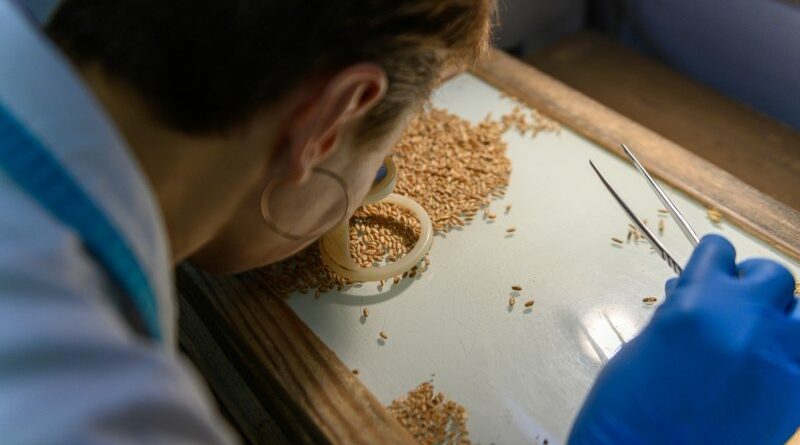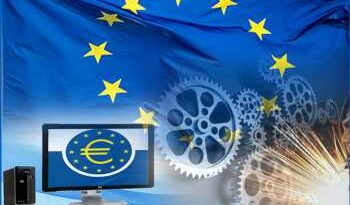Why Ukraine’s riches matter to the world
Capturing resource-rich Ukraine would give Vladimir Putin control of a cornerstone of the global commodities market.
The former Soviet state is a superpower in several crucial goods and is a key supplier for global metals and food markets.
Dubbed “Europe’s bread basket”, Ukraine’s plentiful supply of highly arable black soil has made it a giant in global grain production.Credit:Bloomberg
Supply disruptions and the impact of sanctions if applied to areas annexed by Russia have already sent ripples across global markets.
Analysts at the Centre for Strategic and International Studies said last month that “Russian annexation of some or all of Ukraine would increase Russian manpower, industrial capacity and natural resources to a level that could make it a global threat”.
Michael Strobaek of Credit Suisse said the invasion could fracture global trade as Russia establishes a wider sphere of influence.
“Supply chains are likely to become more regional, leading to elevated inflation for longer as some of the efficiency gains of globalisation are reversed,” he said.
These are some of the key commodities Ukraine produces:
Iron and steel
Ukraine is the fifth-largest exporter of iron by volume, and its 13th largest steel producer, with about 80 per cent of its production sold to other countries. When the Soviet Union collapsed in the early 1990s, Ukraine was one of its iron powerhouses, accounting for 17 per cent of the USSR’s total output.
Coal
With 3.2 per cent of global coal reserves located in Ukraine, according to energy giant BP, the country is narrowly behind Germany as Europe’s biggest source of pollutant fuel source.
This may offer a dwindling benefit as countries try to wean themselves off coal, but even some of the most ambitious net zero plans see countries relying partially on coal for the next few years.
Uranium
Uranium production is key to Ukraine’s plans to wean itself off reliance on Russia for nuclear power. It is Europe’s second-largest producer of the heavy metal, behind only its giant neighbour. In 2018 it was responsible for about 2 per cent of global uranium production, according to the OECD, compared to Russia’s 5 per cent.
As of 2020, this was enough to supply 40 per cent of the domestic nuclear power sector’s needs – the rest largely made up of imports from Russia. Ukraine has spent much of the past decade trying to boost domestic production, a program undermined by years of falling prices challenging the industry’s economics.
Titanium
Ukraine is the world’s fourth-largest exporter of titanium exports, according to the World Bank, sending about 600,000 tonnes of ores and concentrates abroad.The strong, light and corrosion-resistant metal is key in industries including defence and aerospace.
Rolls-Royce will stop buying Russian titanium for its jet engine rotor blades, after years of cutting purchases from Russia, and building up stockpiles in anticipation of further turmoil.
Sunflower oil
Dubbed “Europe’s bread basket”, Ukraine’s plentiful supply of highly arable black soil has made it a giant in global grain production.
Europe’s biggest farming nation, it is the world leader for exports of sunflower oil. It produced 5.9 million tonnes of the oil, a staple of food production, in 2020/21, and together with Russia represents 60 per cent of the total market.
Wheat
It is the world’s second-biggest producer of wheat, behind Russia. Its wheat exports had been projected by researchers at Platts Analytics to hit 22.5 million tonnes this year, after Russia raised export taxes. Together, the countries account for 29 per cent of the global wheat market.
Wheat prices traded in Chicago have hit the highest level since 2008 on expectations that disruption will lead to a supply shortage on global markets already stretched before the invasion.
Ukraine is Europe’s second-biggest exporter of coal. Credit:Getty Images
Michael Magdovitz at Rabobank says: “It’s a low-supplied market. The last thing we need in that market is to tip it into absolute scarcity, and that’s what’s happening right now.”
Corn
Ukraine also exports huge amounts of corn, primarily to China and the EU. It had represented 16 per cent of the total market in recent months, but shipments are likely to be disrupted by the invasion.
Potatoes
The potential disruption to the global food supply extends beyond just grains. Ukraine is just ahead of Russia as the third-biggest producer of potatoes, at almost 21 million tonnes in 2019.
Honey
About 1.5 per cent of Ukraine’s population are involved in beekeeping, according to the UN’s Food and Agriculture Organisation, making the country the world’s fifth-largest producer of honey.
It is also a major producer of eggs, although production has slowed in recent months due to soaring energy prices.
The Telegraph, London
The Business Briefing newsletter delivers major stories, exclusive coverage and expert opinion. Sign up to get it every weekday morning.
Most Viewed in Business
From our partners
Source: Read Full Article




